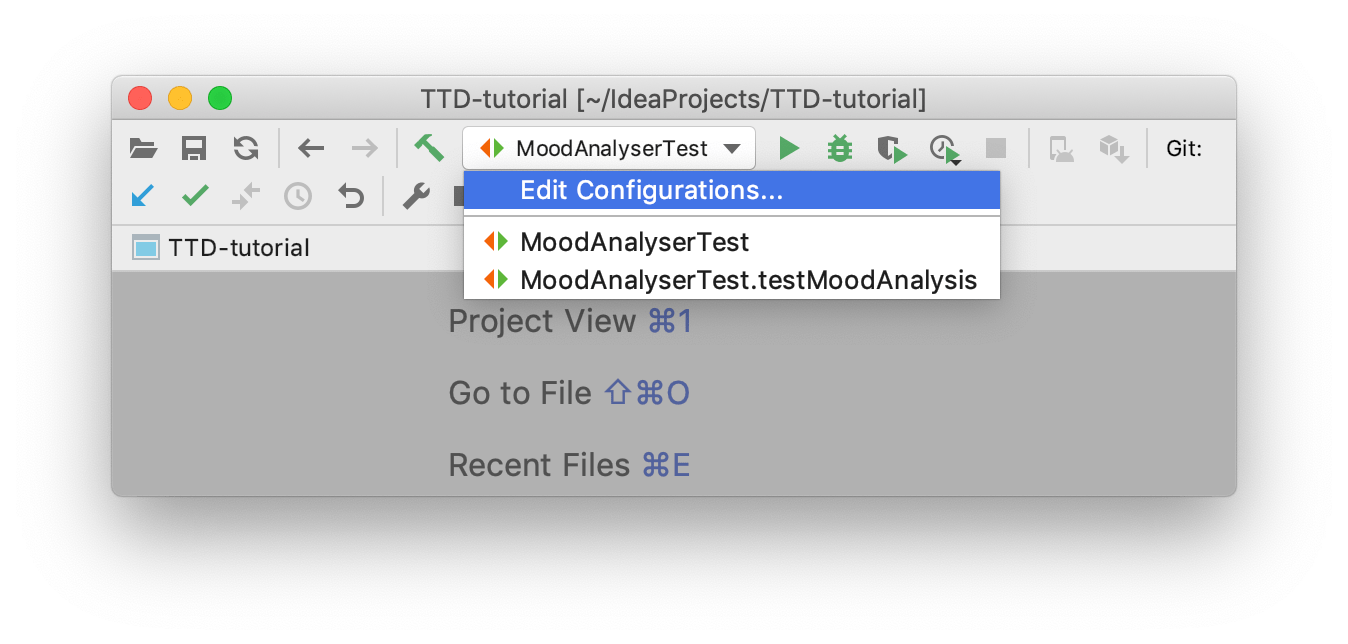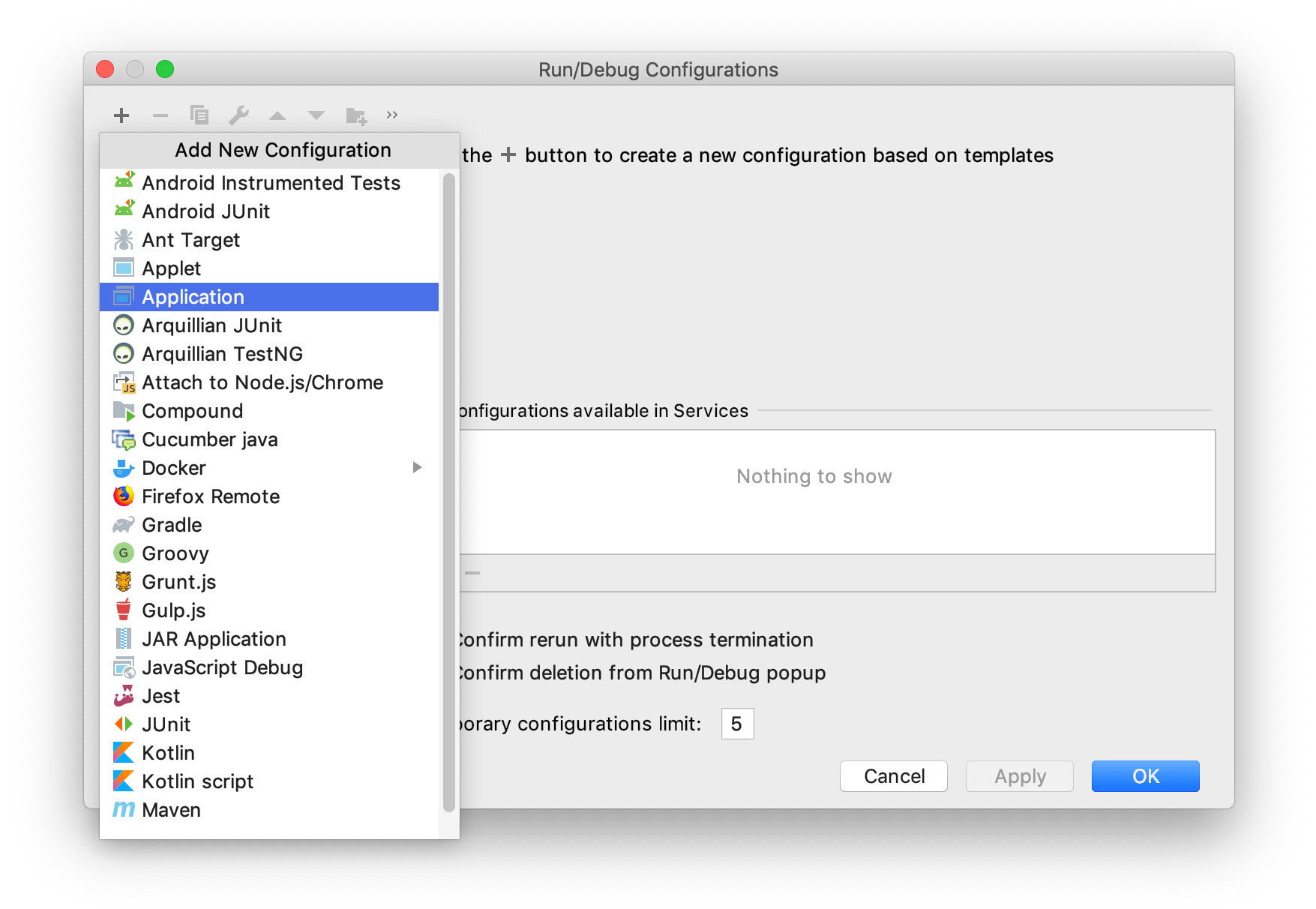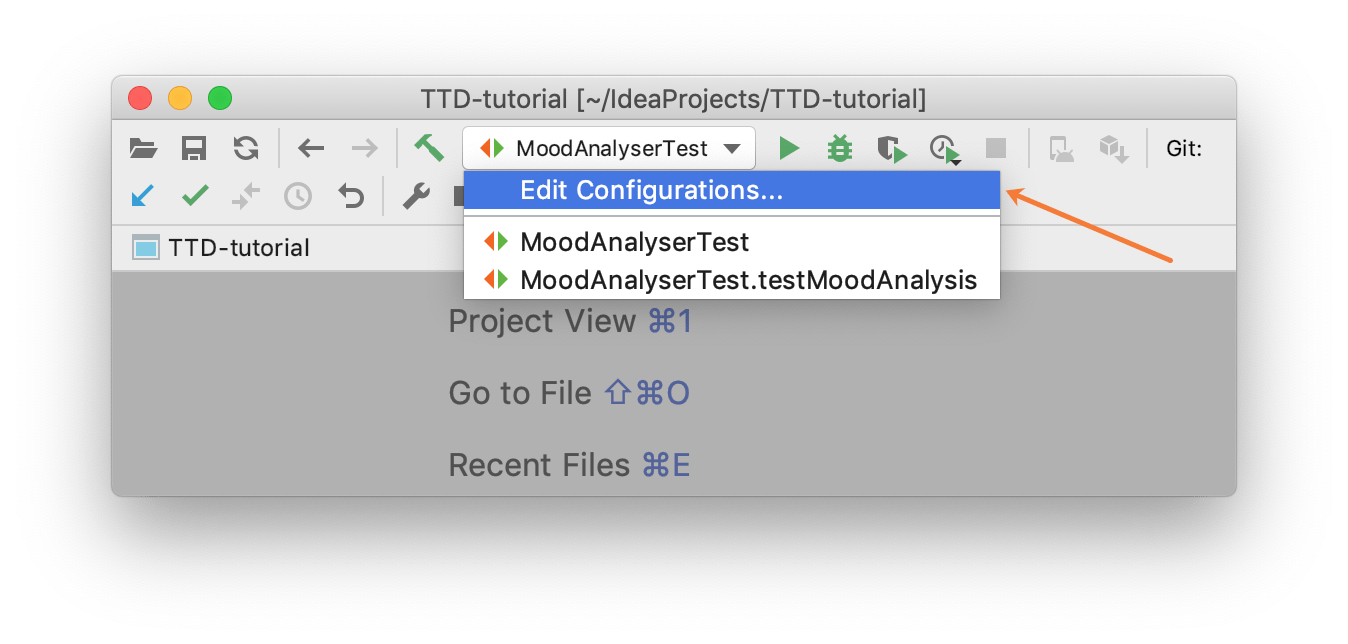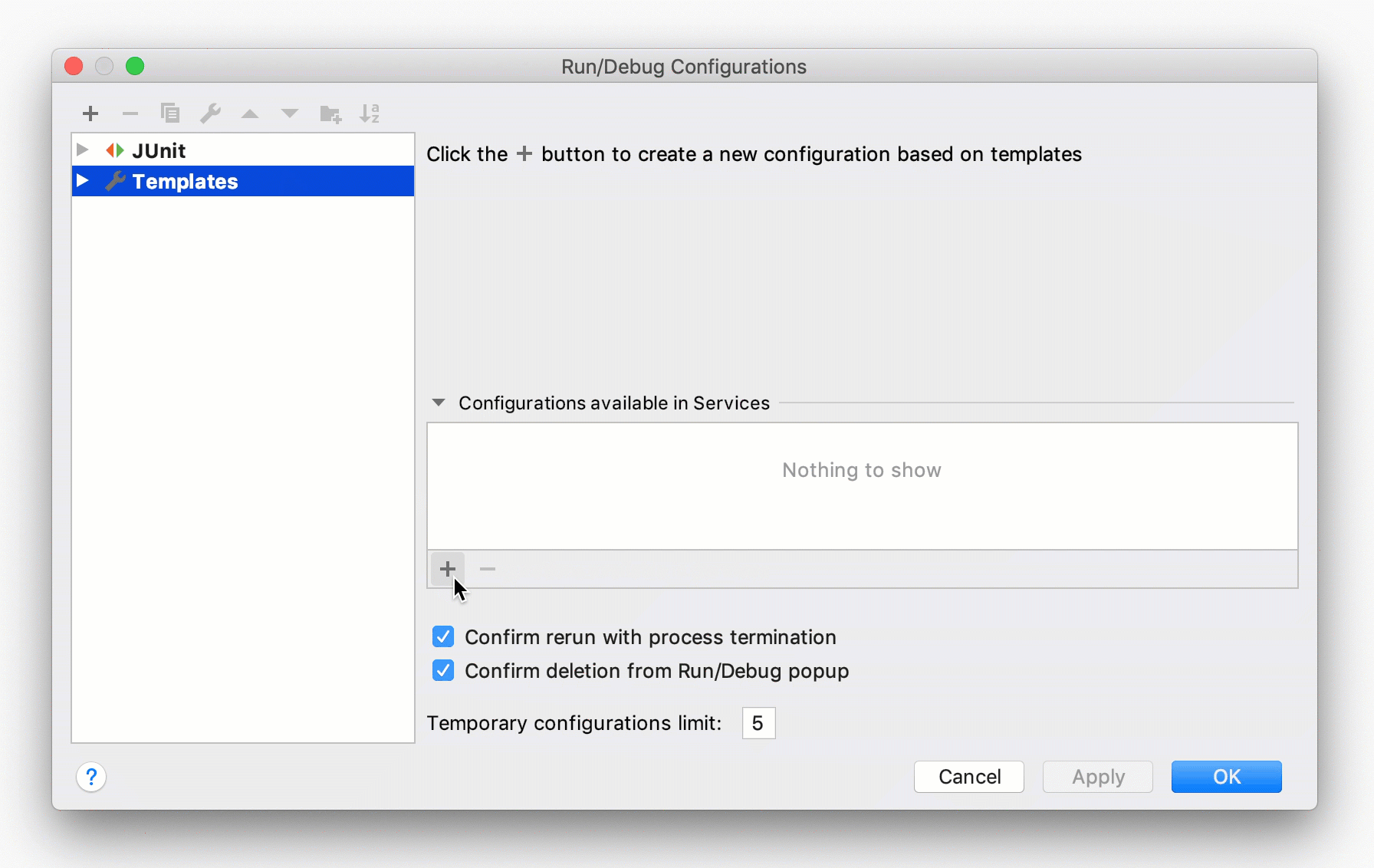Create and Edit Run/Debug Configurations
With the Navigation bar visible (), the available run/debug configurations are displayed in the run/debug configuration selector in the Run area:

IntelliJ IDEA provides the Run/Debug Configuration dialog as a tool for handling run/debug configurations: creating configuration profiles or changing the default ones.
IntelliJ IDEA suggests the following ways to create a run/debug configuration:
Create a run configuration manually on the base of the default one, or using the Run/Debug Configuration dialog.
Specify the target application server during module creation. IntelliJ IDEA will generate a run/debug configuration of the corresponding type.
Create a run/debug configuration
-
Open the Run/Debug Configuration dialog in one of the following ways:
Select from the main menu.
With the Navigation bar visible (), choose from the run/debug configuration selector.
Press Shift+Alt+F10, then press 0 or select the configuration from the popup and press F4.
-
In the Run/Debug Configuration dialog, click
 on the toolbar or press Alt+Insert. The list shows the default run/debug configurations. Select the desired configuration type.
on the toolbar or press Alt+Insert. The list shows the default run/debug configurations. Select the desired configuration type. The fields that appear in the right-hand pane display the default settings for the selected configuration type.

- For a new run/debug configuration:
Specify its name in the Name field. This name will be shown in the list of the available run/debug configurations.
-
Specify whether you want to make IntelliJ IDEA check execution status of the instances of the same run/debug configuration. If you want to make sure that only one instance of the run/debug configuration is currently executed, select the checkbox Single instance only. In this case, a confirmation dialog will show up every time you try to launch run/debug configuration, when one instance of the same type is still running.
If you click OK in the confirmation dialog, the first instance of the runner will be stopped, and the next one will take its place.
If this checkbox is not selected, you can launch as many instances of the runner as required. As the result, each runner will start in its own tab of the Run tool window.
In the Before launch section, define whether you want to compile the modified sources, and run an Ant or Maven script.
In the Configuration tab, specify the class that contains the
main()method, VM options, program arguments, working directory and other configuration-specific settings.- In the Logs tab, specify the options that control output logs produced while running or debugging application.
In particular, specify whether IntelliJ IDEA will display the standard output and standard error output to the console.
For the various servers, set up the deployment and startup/connection options.
For the applications and tests, click the Code Coverage tab (for example, in applications run/debug configuration), and specify the options that define code coverage measurement for testing purposes.
Specify additional parameters depending on the configuration type. For descriptions of run/debug configuration parameters, refer to the Run/Debug Configurations Dialog section.
Apply the changes and close the dialog.
Edit an existing run/debug configuration
- Do one of the following:
From the main menu, choose .
With the Navigation Bar visible (), choose from the run/debug configurations selector.
Press Shift+Alt+F10, then press 0 to display the Edit Configuration dialog, or select the configuration from the popup and press F4.
In the corresponding run/debug configuration dialog, change parameters as required.
If a project has been created in an earlier version of IntelliJ IDEA, its run/debug configurations can be lost, when such a project is, already opened in the same window.
To avoid the loss of run/debug configurations, it is recommended that you open such a project once in the latest version, and only after being added to another project.
Enable the Services tool window
You can manage multiple run/debug configurations in the Services tool window. For example, you can start, pause, and stop several applications, track their status, and examine application-specific details.
From the main menu, select or use the selector on the toolbar.

In the Run/Debug Configurations dialog, select Templates from the list on the left.
In the right-hand pane, expand the Configurations available in Services section.
-
Click
 in the Configurations available in Services section and select the necessary run configuration type.
in the Configurations available in Services section and select the necessary run configuration type. You can add or remove multiple configuration types one by one.

Note that the tool window will only display the configuration types for which you have created one or more configurations.
Thus, if you add a configuration type for which no configurations exist in the project, this type will not be displayed in the tool window until you create a configuration of this type.
-
Apply the changes and close the dialog. The Services tool window with the selected configurations will open.